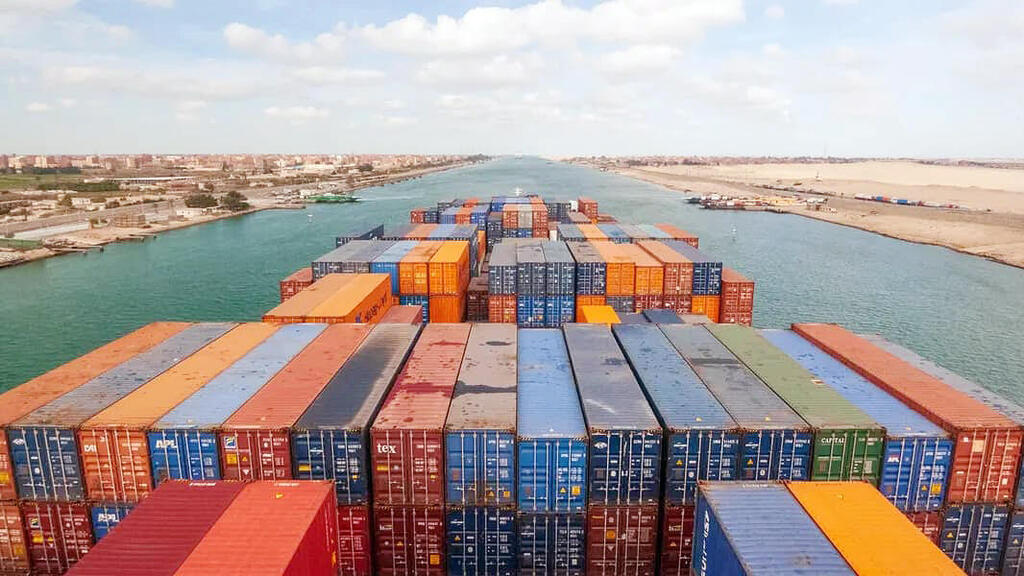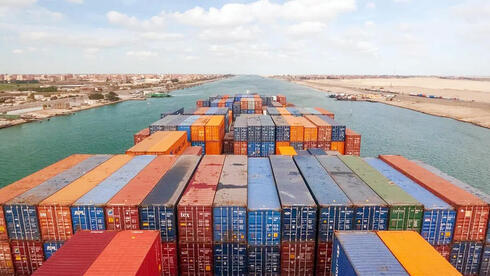
The $9.4 billion dilemma: Egypt will need to act against Houthis to protect Suez Canal
The announcement by the world's four largest shipping companies about suspending sailing through the Suez Canal due to the increasing Houthi attacks is not only a severe blow to global trade but, more importantly, to Egypt's national security
The announcement by the world's four largest shipping companies at the end of the week about suspending sailing through the Suez Canal due to the increasing Houthi attacks in the Bab el-Mandeb Strait is not only a severe blow to global trade but, more importantly, to Egypt's national security.
This decision is anticipated to significantly reduce shipping traffic in the Suez Canal, impacting Egypt's income, as about 20% of the world's oil and gas consumption passes through Bab el-Mandeb. Additionally, the Suez Canal handles approximately 98% of the ships traveling between Europe and Asia, encompassing about 30% of global container traffic and 12% of global goods trade. Last fiscal year, the canal contributed $9.4 billion to Egypt's economy, making it a vital source of foreign exchange income. On average, the canal generates $25-30 million for Egypt each day through shipping fees and additional services.
In March 2021, when the Suez Canal faced a six-day obstruction due to container ship Ever Given running aground, Egypt's estimated losses were around $100 million. The obstruction also highlighted the canal's immense importance to global trade. Although the canal is currently open, the recent shipping companies' announcement is expected to result in reduced traffic, causing economic damage to Egypt and the global economy.
Beyond revenue loss, the diminishing traffic poses a significant image problem for Egypt, a country that views the canal as a national symbol. Authorities in Cairo have previously invested many efforts to secure the canal against potential threats from jihadist organizations. The potential threat from Houthi attacks may force Egypt to abandon its low-profile stance and take action to minimize the damage.
Related articles:
The last instance of a country threatening Egypt's national security to such an extent was when Ethiopia constructed the “Renaissance Dam" on the Nile River, along whose banks the majority of the country's population is concentrated. This mega-project in Ethiopia jeopardizes the flow of the Nile to Egypt and, consequently, the lives and food of millions of Egyptians. Despite engaging in prolonged negotiations with Addis Ababa, the Egyptians achieved little in terms of tangible results. However, they refrained from resorting to force, partly due to the lack of intra-African legitimacy.
The current situation is different and could lead Egypt to coordinate with the U.S. and deploy military action against Houthi targets if the Canal continues to suffer. Public sentiment in Egypt may support such measures, given the Canal's paramount importance. However, diplomatic avenues will likely be explored before resorting to military force.
Reports suggest that Oman is conveying messages to the Houthis on behalf of third parties, including Egypt, but as of now, there has been no response from the Yemeni rebels. Egypt is also expected to join an international coalition, led by the U.S., to protect shipping traffic in the Red Sea and the Arabian Sea, along with other Arab nations like Jordan and Saudi Arabia.
